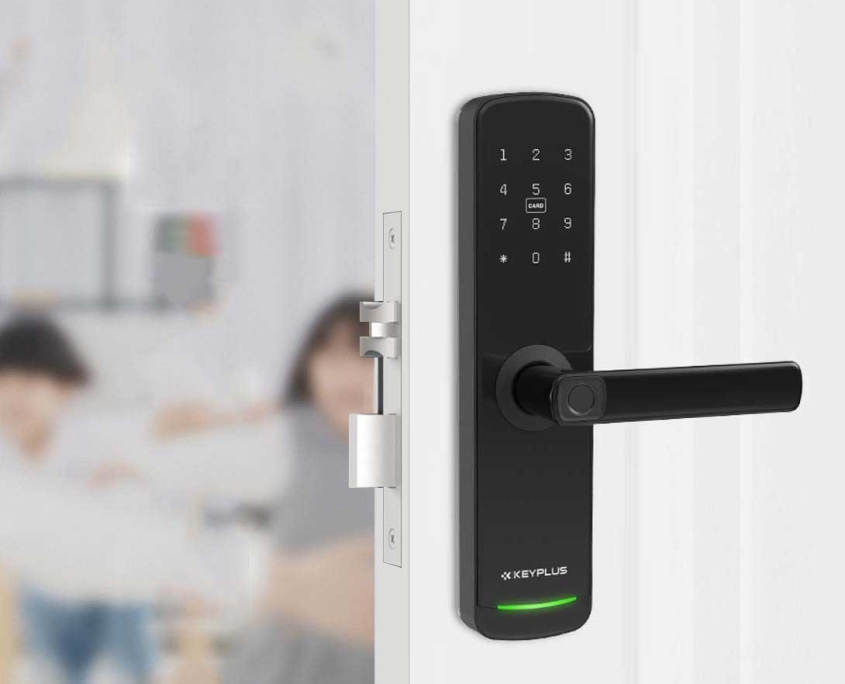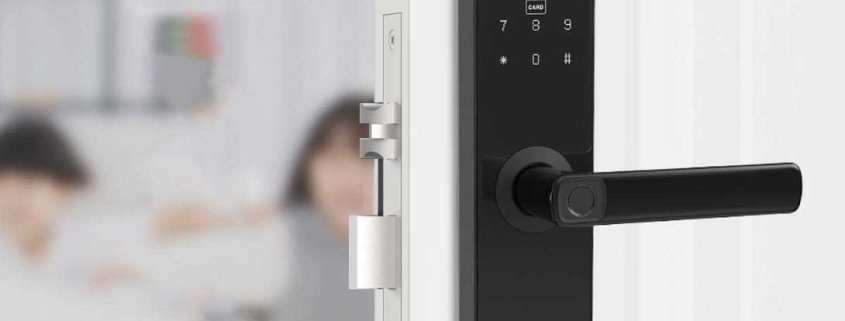Can a Smart Lock Go on Any Door?
Smart locks have revolutionized home security, offering convenience, keyless entry, and remote access control. But if you’re considering upgrading your traditional lock to a smart one, you might wonder: Can a smart lock go on any door?
The short answer is: Mostly, but not always. While smart locks are designed to fit standard doors, several factors determine compatibility. In this guide, we’ll explore:
-
Types of Smart Locks and Their Installation Requirements
-
Door Compatibility Factors (Material, Thickness, and Pre-Drilled Holes)
-
Common Door Types in U.S. Homes and Smart Lock Suitability
-
Rental Properties and Landlord Considerations
-
Professional vs. DIY Installation
By the end, you’ll know whether a smart lock will work for your door—and what to do if it doesn’t.
1. Types of Smart Locks and Their Installation Requirements
Not all smart locks are the same. The three most common types in the U.S. are:
A. Deadbolt Replacement Smart Locks
These replace your existing deadbolt and are the most secure option.
Works with: Most standard exterior doors with a deadbolt.
Won’t work with: Mortise locks (common in older homes) or doors without a deadbolt.
B. Lever Handle Smart Locks
Often used for interior doors (like offices or rental units), these replace the doorknob. Examples include the Kwikset Halo Touch.
Works with: Doors that have a lever-style handle.
Won’t work with: Exterior doors needing high security (lever locks are easier to force open).
C. Retrofit Smart Locks (Over-the-Deadbolt)
These attach to your existing deadbolt without full replacement.
Works with: Almost any deadbolt (minimal modifications needed).
Won’t work with: Non-standard deadbolts or doors with unusual backset measurements.
2. Door Compatibility: Key Factors to Check
Before buying a smart lock, check these four aspects of your door:
A. Door Material
-
Wood Doors: The most compatible—easy to drill if needed.
-
Metal Doors: Possible, but may require professional installation due to drilling difficulty.
-
Glass/Fiberglass Doors: Some smart locks work, but reinforcement may be needed.
B. Door Thickness
Most smart locks fit doors between 1⅜” to 2¼” thick. Measure yours before purchasing.
C. Backset (Distance from Edge to Deadbolt Center)
-
Standard backsets: 2⅜” or 2¾” (most smart locks support both).
-
Non-standard backsets (like 1½” or 3”) may require adapters or a different lock.
D. Existing Holes & Lock Mechanism
-
If your door has a mortise lock (common in historic homes), you’ll need a specialized smart lock.
-
Some condo/apartment doors have multi-point locking systems, which may not be compatible.

3. Common U.S. Door Types and Smart Lock Suitability
A. Standard Residential Entry Doors
Best for smart locks. Most single-family homes have pre-drilled deadbolts that work with smart locks.
B. Apartment/Condo Doors
Check lease agreements first. Some landlords prohibit modifications. If allowed, retrofit locks are ideal.
C. Storm/Screen Doors
Possible, but tricky. Ensure the smart lock doesn’t interfere with the door’s closing mechanism.
D. Sliding Glass Doors
Not compatible with most smart locks. Consider a smart patio door lock instead.
E. Garage Entry Doors
Yes, but ensure weather resistance. Some smart locks aren’t designed for extreme temperatures.
4. Renting? Landlord and Lease Considerations
If you’re a renter, always:
-
Check your lease agreement (some prohibit lock changes).
-
Ask your landlord—they may approve if you use a non-destructive option.
-
Keep the original lock to reinstall when moving out.
5. Professional vs. DIY Installation
DIY Installation
-
Best for: Standard doors with pre-drilled holes.
-
Tools needed: Screwdriver, measuring tape, possibly a drill.
-
Time required: 15–30 minutes for most models.
Professional Installation
-
Recommended if: Your door is metal, has a mortise lock, or requires new drilling.
-
Cost: 200 (varies by locksmith).
Final Verdict: Will a Smart Lock Work on Your Door?
Yes, if:
-
You have a standard wood/metal door with a deadbolt.
-
Your door thickness and backset match the lock’s specs.
-
You’re okay with minor adjustments (if needed).
No, if:
-
Your door has a mortise/multi-point lock (without an adapter).
-
It’s a sliding or non-standard door.
-
Your landlord prohibits modifications.
Next Steps:
-
Measure your door (thickness, backset, deadbolt type).
-
Check the smart lock’s specs before buying.
-
Consult a locksmith if unsure.
Smart locks offer convenience and security—but only if they fit. With the right research, you can upgrade your door hassle-free!
Would you like recommendations for specific smart lock models based on your door type? Please let us know in the comments section!









